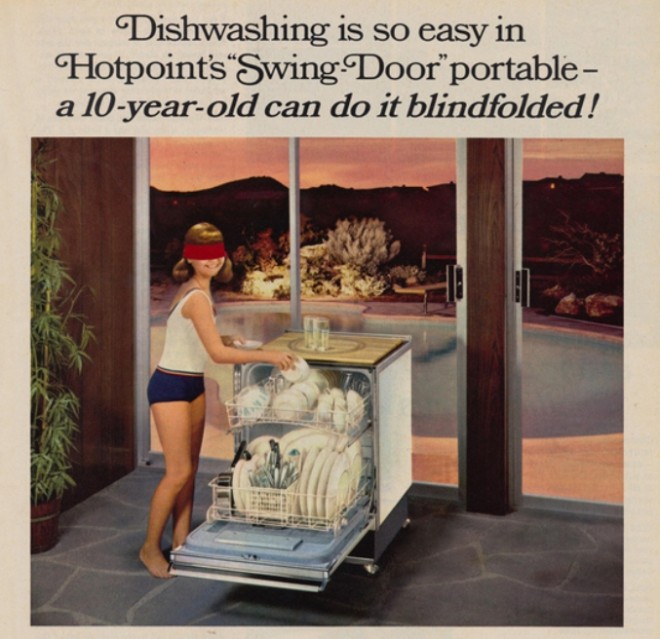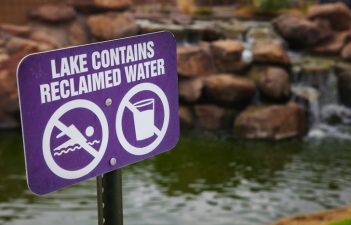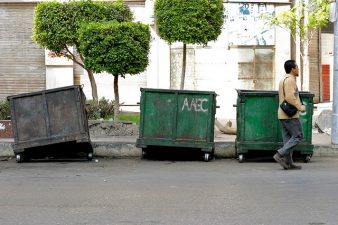 Is it better to plunk dirty dinner plates into the automatic washer, or go retro and wash them by hand? The spouse thinks it wiser (and greener) to clean messes as they occur. I like how the dishwasher lets me defer. He says his way saves water. I know mine saves time. We’ve argued this for years.
Is it better to plunk dirty dinner plates into the automatic washer, or go retro and wash them by hand? The spouse thinks it wiser (and greener) to clean messes as they occur. I like how the dishwasher lets me defer. He says his way saves water. I know mine saves time. We’ve argued this for years.
Who needs a marriage counselor when you’ve got Twitter? Follow a few sites that defend your pet positions, and a stream of irrefutable truths will help you emerge victorious in any marital debate. In terms of water consumption, the eco-blogs I follow come down firmly in favor of mechanical cleaning. (Power demand and comparative carbon foot-printing are not part of this discussion.) So here in Amman, Jordan – the 4th most water-starved nation on earth – it’s going to be the dishwasher every time.
Start with some back-story. The first reliable dishwasher was invented in 1887 by Josephine Cochrane, a wealthy woman weary of servants chipping her china when they washed up. So she developed a hand-operated contraption to lower intra-china-contact, ultimately manufacturing the devices for hotel and restaurant use. The earliest machines consisted of wire cubbies and shelves that secured dishes so they could be safely doused with soapy water and rinsed clean. The process was controlled by strenuous hand-cranking.
Sale of automatic dishwashers to home consumers didn’t take off until the 1950s. I remember the excitement when my dad brought one home in 1969 – the first one installed on our middle-class suburban New Jersey block. Washing and drying dishes had been the job of my brothers and little me. This new home improvement gave us more time to watch that other gizmo – our new color TV!
Reasons why dishawashers are the eco way to way dishes
There are innovations in play. As example, Turkish designers have developed a compact, water-less dishwasher. But in a straight comparison of hand versus mechanical washing, research by the American Water Works Association, Scientific American, and soap-maker Cascade shows that (dish-pan) hands-down, the machine is the greener cleaner. Here’s two reasons why:
1. Typical hand-washing uses more water than a standard dishwasher cycle. Tests show that – for the same type and number of kitchen items – hand-washing consumes an average of 27 gallons of water compared to 4.25 gallons for a cycle in an Energy Star-rated dishwasher. That’s more than a six-fold improvement in water use!
2. Studies show that most people (96% of us!) spend an hour each week pre-washing plates before popping them in the washer, using gallons of water in the process. Most modern dishwashers have rudimentary garbage disposals and filters to capture food and prevent blocked drain lines. So pass on pre-washing. Just scrape off solid food and let your dishwasher do the rest.
By the numbers, how dishwashers fare better
Researchers at the University of Bonn in Germany found that, compared to hand washing, dishwashers use only half the energy, one-sixth of the water, and less soap.
Dishwashers also won on cleanliness.
Energy Star claims that using an efficient dishwasher can save you over 230 hours of time over the course of a year. That’s over a week of vacation!
Just remember these tips to washing dishes “greener”:
- Choose an eco-friendly dishwasher.
- Run your machine full, on the “light” cycle and turn off the “heated drying” option.
- Choose eco-friendly dishwashing soap with eco-labels like Green Seal or Environmental Choice’s EcoLogo.
- Hand wash big pots, knives (blades can dull), and plastic containers (which release harmful chemicals when washed).
Domestic bliss restored, thanks to the internet.




Comments are closed.